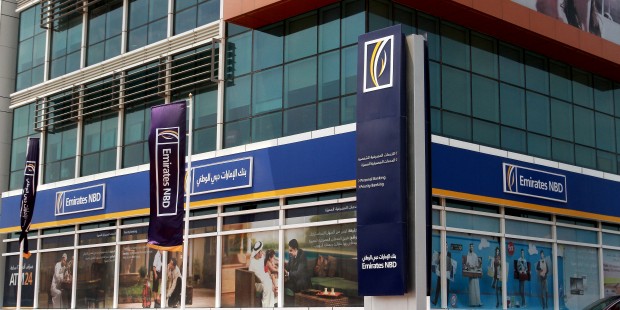Emirates NBD Looks Beyond Gulf For Growth
Dubai’s largest bank is targeting international revenues of around 20 per cent of its total by 2017.

Emirates NBD, Dubai’s largest bank, is looking for acquisitions in fast-developing African markets to satisfy investor demand for growth it is unlikely to deliver at home.
The Dubai-based bank is targeting international revenues of around 15-20 per cent of its total in five years’ time, up from 5 per cent at present, its chief executive Rick Pudner said in an interview at the Reuters Middle East Investment Summit.
Acquisitions are likely to play a role in this, given the difficulties of achieving organic growth in the current economic environment, Pudner said, marking a significant shift from the bank’s previous strategy of building the business organically.
“If you can find something that isn’t betting the bank on but is a good opportunity to take advantage of weaker asset prices in the region, then you need to look at it,” Pudner said, confirming the bank was looking at a couple of potential buys, including in Africa.
Emirates NBD, which was formed by the 2007 merger of Emirates Bank and National Bank of Dubai, has enough cash to acquire the type of asset it is looking at without seeking outside finance, added the former HSBC executive, who has spent much of the last 30 years working in the Gulf region.
While Pudner would not comment on a Reuters report that the bank was looking to acquire the Egyptian assets of BNP Paribas, he said the North African country was an attractive market for the bank.
“It’s not, per capita, the most wealthy country in the region but it’s got the potential,” he said.
“Demographics are key and it’s a big population and an under-banked population. If you look at the next 10, 20, 30 years in terms of the development of that kind of economy, it has to be long-term positive.”
Egypt has been attracting the attention of a number of Gulf banks recently. As well as BNP’s unit being up for sale, Qatar National Bank is close to buying a majority stake in Societe Generale’s Egyptian business.
While ENBD was looking at opening in a couple of strategic locations in Asia, it was unlikely to expand its operations there in the near term, instead focusing its attention on a Middle East arc stretching from Turkey to India.
“Historically, we’ve been interested in Turkey but there’s nothing specific at the moment,” Pudner said.
Global uncertainty has hit the confidence of businesses to invest around the world and in the United Arab Emirates, which was feeding through into lower loan growth and, therefore, constrained earnings potential, he added.
Latest figures from the UAE central bank show lending across the country’s banking system grew just 3 per cent in the first nine months of the year, and ENBD warned last month that loan growth would be modest into 2013.
“From ENBD’s perspective, this is the most liquid we have ever been but that’s not because we are being conservative in our approach to supporting the economy – it’s just finding opportunities to lend money,” Pudner said.
ENBD, 56 per cent-owned by state fund Investment Corp of Dubai, has seen earnings heavily hit in recent quarters by its exposure to indebted Dubai state-owned entities – the most famous being Dubai World, which shook global markets in 2009 when it asked creditors to restructure $25 billion of debt.
The third largest bank by assets in the Gulf, which has an 18 per cent market share in the UAE, according to Pudner, booked nearly Dhs5 billion ($1.36 billion) of impairments in 2011 and has provisioned Dhs3 billion in the first nine months of this year.
Provisioning, as well as non-performing loans, was expected to peak in 2013, Pudner said, adding that most of Dubai’s debt problems were now known and being handled.
Exposure to the Dubai sovereign and state-owned entities has been in focus in recent months as part of a move by the UAE central bank to introduce limits on such lending – regulation which a number of banks, including ENBD, were not in compliance with at the September 30 deadline.
Pudner said negotiations with the central bank on how ENBD would comply with the new rules were still underway, but he hoped they would be concluded “within the next few weeks”.
“We’ve got a plan but it’s a question of agreeing that with the central bank,” he said.
Pudner said that while he was not surprised by the content of the rules, he had not expected the tight deadline that banks were given to comply. A circular from the regulator was issued in April, giving banks around six months to address the issue.
